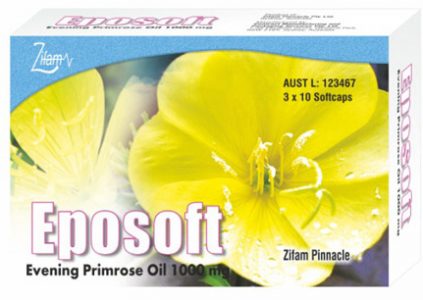
Premenstrual Syndrome – Know the Facts
The continuum of an individual’s life can be divided into several life stages, each characterized by certain features. Biologically, life stages of a woman are segmented into infancy, puberty (adolescence), sexual maturation (reproductive age), perimenopausal period, and post-menopausal (elderly) years.
As the female enters the stage of puberty (about age 13 years onwards), her body begins to undergo initiation of adaptive changes to facilitate reproduction and motherhood when she becomes an adult. The transition through these stages is accompanied by considerable cyclical hormonal variations. (Hormones are chemical messengers which possess tissue specific action)
Menstruation – An Overview
One such biological event occurring in a female’s life that begins at puberty and continues through her reproductive age is menstruation – commonly referred to as ’periods’.
Menstruation (or ‘periods’) occurs because of changes in hormones in the female body. The ovaries (reproductive organs which produce eggs) release the female hormones oestrogen and progesterone. These hormones cause the lining of the uterus (or womb) to build up. The built-up lining is ready for a fertilized egg to attach to and start developing. If there is no fertilized egg, the lining breaks down and bleeds. Then the same process happens all over again. It usually takes about a month for the lining to build up, then break down. That is why most females get their periods around once a month.
Premenstrual Syndrome (PMS)
Premenstrual syndrome (PMS) is a condition that affects a woman’s physical health, emotions, and behaviour during certain days of the menstrual cycle, generally just before her menses.
PMS is a very common condition, with most women experiencing its signs and symptoms.
Signs and Symptoms of PMS
- Physical symptoms include dysmenorrhoea i.e. cramping pain in the lower abdomen and/or lower back, sometimes radiating down the legs. These are often associated with nausea, vomiting, abdominal discomfort, weakness and headaches.
- Mood symptoms include irritability, mood lability, depression or anxiety.
- The symptoms generally begin and progress few days before menstruation and tend to lessen during menstruation. The symptoms are often severe enough to interfere with patients’ daily activities and relationships.
Why Does Premenstrual Syndrome Occur?
Though definitive causes are not known, since the causes are multifactorial and involve several complex interactions as postulated:
- Some women are particularly sensitive to changes in hormonal levels (progesterone and oestrogen) which occur in the premenstrual phase.
- Women with premenstrual symptoms have been shown to have high prolactin levels throughout the menstrual cycle and especially in the premenstrual phase. In the setting of insufficiency of another chemical ‘prostaglandin E1’ (a chemical which modulates inflammation in the body), the biological activity of prolactin may worsen symptoms of PMS.
- Rising oestrogen and progesterone levels may reduce serotonin levels, a brain chemical known to regulate mood.
Goals of Treatment
Premenstrual Syndrome is not a disease, it is just a natural biological phenomenon occurring in the lives of females of the reproductive age group.
- Hormonal therapies and Selective Serotonin Reuptake Inhibitors (SSRIs) are at best avoided because they may have unfavourable implications on the body systems in the longer run.
- Certain lifestyle factors such as intake of fried foods, sweet drinks, fast food, lack of physical activity and increased body weight could worsen symptoms associated with premenstrual syndrome. Interventions to create awareness in this direction are useful.
- Hence, the goals of treatment must aim towards self-awareness about PMS and relief of symptoms.
Consider Natural Supplements
Evening Primrose Oil
- Evening primrose oil – a rich source of Gamma-linolenic acid (an essential fatty acid), is a precursor of prostaglandin E1. Increasing prostaglandin E1 may help to reduce the sensitivity to the effects of high prolactin hormones responsible for symptoms of PMS.
- It has been shown that women who suffer from mastalgia (breast pain) have low levels of GLA or its derivatives. This deficiency is associated with over sensitivity of breast issues to reproductive hormones and this probably causes breast pain.
- Results of a study indicated that supplementation with GLA derived from Evening Primrose Oil resulted in an overall 97% response rate for the symptomatic relief of breast pain in the management of cyclic mastalgia.
Vitamin E
- Vitamin E crosses the blood brain barrier and modulates the effect of neurotransmitters which are responsible for mood alterations in Premenstrual Syndrome
Vitamin E is widely known as a powerful antioxidant and has potential role in improving skin health.
An Awareness Initiative from Makers of:


Product of:

Zifam Pinnacle Pty Ltd,
Sydney, Australia



